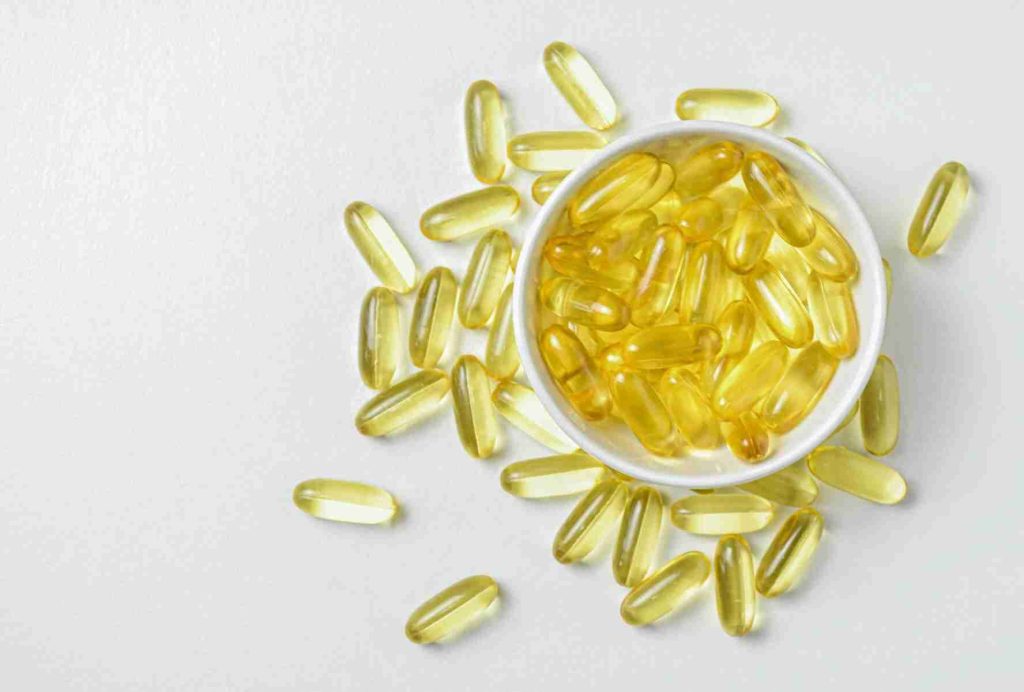As the days grow shorter and winter approaches, the concern about vitamin D deficiency starts to loom. While the sun-soaked days of summer offer a natural source of this vital nutrient, the winter months, especially in regions with limited sunlight, pose challenges. In this blog, we delve into the significance of vitamin D, the prevalence of deficiency, and the potential benefits of supplementation. Let’s shed light on the multifaceted role of vitamin D beyond its well-known impact on bone health.
The Sun, Our Natural Source of Vitamin D
During summer, the primary source of vitamin D is exposure to sunlight. Ultraviolet rays, specifically UVB, interact with 7-dehydrocholesterol in the skin, converting it into vitamin D. However, as winter sets in, the decrease in sunlight, overcast days, and extended nights reduce our ability to produce vitamin D naturally.
Geographical location also plays a role, with those closer to the equator producing more vitamin D than those residing near the poles. In the UK, vitamin D deficiency becomes a prevalent issue during winter due to its northern position, cloudy weather, and reduced time spent outdoors.
A study involving over 440,000 UK residents revealed that 18% experienced vitamin D deficiency during winter. Ethnic disparities were evident, with 57% of Asian participants and 38% of black participants being deficient. This discrepancy is attributed to the melanin content of the skin, influencing the conversion of UVB into vitamin D.
Recommendations for Vitamin D Intake
Recognizing the importance of vitamin D for overall health, the UK’s Science Advisory Council on Nutrition set recommendations in 2016. They advise a daily intake of ten micrograms (400 IU) during winter to prevent severe deficiency. This can be achieved through supplements or vitamin D-rich foods like fatty fish—herring, mackerel, and wild salmon being excellent sources.
A 100-gram serving of fresh herring, for instance, provides approximately five micrograms of vitamin D. The emphasis on adequate vitamin D intake stems from its pivotal role in bone health, preventing conditions like rickets, which weakens bones.

Beyond Bone Health: Exploring Additional Benefits
1. Immune System Support
Recent research suggests a broader spectrum of benefits associated with vitamin D supplementation. Deficiency is linked to an increased risk of viral illnesses, including the common cold, flu, and COVID. Cell models indicate that vitamin D promotes immunity against microbes, potentially preventing infections such as tuberculosis.
2. Inflammation and Autoimmune Diseases
Vitamin D may also modulate inflammatory immune responses, offering potential protection against autoimmune diseases like multiple sclerosis and rheumatoid arthritis. A 2022 trial involving over 25,000 individuals aged 50 and above found a daily 2,000 IU vitamin D supplement associated with an 18% lower risk of autoimmune disease, particularly rheumatoid arthritis.
3. Cardiovascular Health
A significant Australian study with more than 21,000 participants aged 60-84 revealed that a daily 2,000 IU vitamin D supplement for five years correlated with a lower risk of major cardiovascular events, including stroke and heart attack.
While the exact mechanisms behind these benefits remain unclear, the observed positive effects raise intriguing questions. It’s noteworthy that in many trials, participants had adequate vitamin D levels, suggesting even greater benefits for those with deficiencies. Future research will likely delve into these factors for a more comprehensive understanding.
Rethinking Vitamin D Supplementation Advice
As we navigate the complexities of vitamin D, it becomes apparent that the current supplementation recommendations may need reconsideration. While the UK advises 400 IU daily, numerous trials indicate health benefits with a higher dose of 2,000 IU. Especially for individuals over 65, those with darker skin, or those spending extended periods indoors, supplementation in the winter months may be particularly beneficial.
In conclusion, vitamin D transcends its role as a mere bone-strengthening nutrient. Its impact on the immune system, inflammation, autoimmune diseases, and cardiovascular health suggests a broader significance. As research continues to unravel the intricacies of vitamin D, it’s evident that this sunshine vitamin holds the potential to illuminate various aspects of our well-being. So, as winter approaches, consider basking in the warmth of vitamin D supplementation for a healthier, brighter you.
Here’s a summarized table highlighting the benefits of Vitamin D:
| Benefit | Description |
|---|---|
| Bone Health | Strengthens bones, preventing conditions like rickets and osteomalacia. |
| Immune System Support | Reduces the risk of viral illnesses, including the common cold, flu, and COVID. |
| Microbial Immunity | Promotes immunity against microbes, potentially preventing infections such as tuberculosis. |
| Inflammation Regulation | Dampens inflammatory immune responses, offering potential protection against autoimmune diseases. |
| Cardiovascular Health | Associated with a lower risk of major cardiovascular events, including stroke and heart attack. |
In her discussion, Dr. Dawn-Elise Snipes explores 23 unexpected advantages of Vitamin D, shedding light on both the positive impacts, such as enhanced mood and immunity, and the repercussions of insufficient Vitamin D levels.
References:
- Holick, M. F. (2007). Vitamin D Deficiency. New England Journal of Medicine, 357(3), 266–281. https://doi.org/10.1056/NEJMra070553
- SACN (Scientific Advisory Committee on Nutrition). (2016). Vitamin D and Health. https://www.gov.uk/government/publications/sacn-vitamin-d-and-health-report
- Martineau, A. R., Jolliffe, D. A., & Hooper, R. L. et al. (2017). Vitamin D supplementation to prevent acute respiratory tract infections: systematic review and meta-analysis of individual participant data. https://www.bmj.com/content/356/bmj.i6583
- Prietl, B., Treiber, G., Pieber, T. R., & Amrein, K. (2013). Vitamin D and Immune Function. Nutrients, 5(7), 2502–2521. https://doi.org/10.3390/nu5072502
- Impact of Vitamin D Receptor Gene Polymorphism on Systemic Lupus Erythematosus Susceptibility: A Pooled Analysis. https://www.liebertpub.com/doi/10.1089/gtmb.2021.0167
- Manson, J. E., Cook, N. R., Lee, I. M., Christen, W., Bassuk, S. S., Mora, S., … & Gaziano, J. M. (2019). Vitamin D Supplements and Prevention of Cancer and Cardiovascular Disease. New England Journal of Medicine, 380(1), 33–44. https://doi.org/10.1056/NEJMoa1809944
